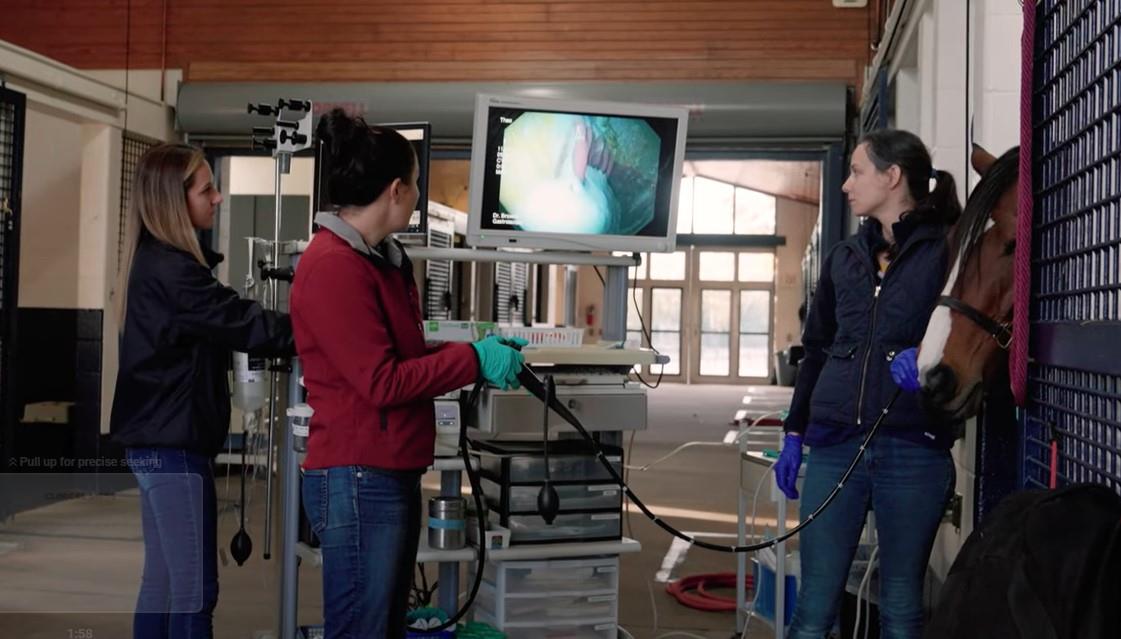Watch as Dr. Nimet Browne talks about Gastric Ulcer Syndrome
About This Video
Dr. Nimet Browne talks about Equine Gastric Ulcer Syndrome - a disease that can cause ulcers in the stomach of horses. There are two different types of ulcers: squamous ulcers and glandular ulcers. Ulcers can be very common in horses and can lead to a variety of health issues. There are many different causes of gastric ulcers, such as the breakdown of protective barriers in the stomach and the subsequent exposure of the stomach to increased acid.
The affects of gastric ulcers can be anything from signs of colic, inappetence, weight loss, unthriftiness, or behavioral changes in the horse. All of these can be very easy to miss as these signs are often vague. While not always completely avoidable, there are preventative measures that can be taken to help to try to prevent gastric ulcers in your horse.
Additional Information
About The Expert

Dr. Nimet Browne studied veterinary medicine at University of Tennessee, graduating in 2010. Following veterinary school, Browne went on to complete an internship in a private practice in Illinois, then a large animal internal medicine residency at Virginia Tech. During that time, she also obtained a Masters of Public Health with a focus on infectious disease. Following her residency, Browne completed a yearlong fellowship at Hagyard Equine Medical Institute. In 2016, she took a faculty position in the equine internal medicine department at North Carolina State University. Her interests include neonatal medicine, gastrointestinal disease, infectious disease, and public health. She is currently working on manuscripts regarding infectious causes of diarrhea in neonates as well as the use on enrofloxacin in neonates.


